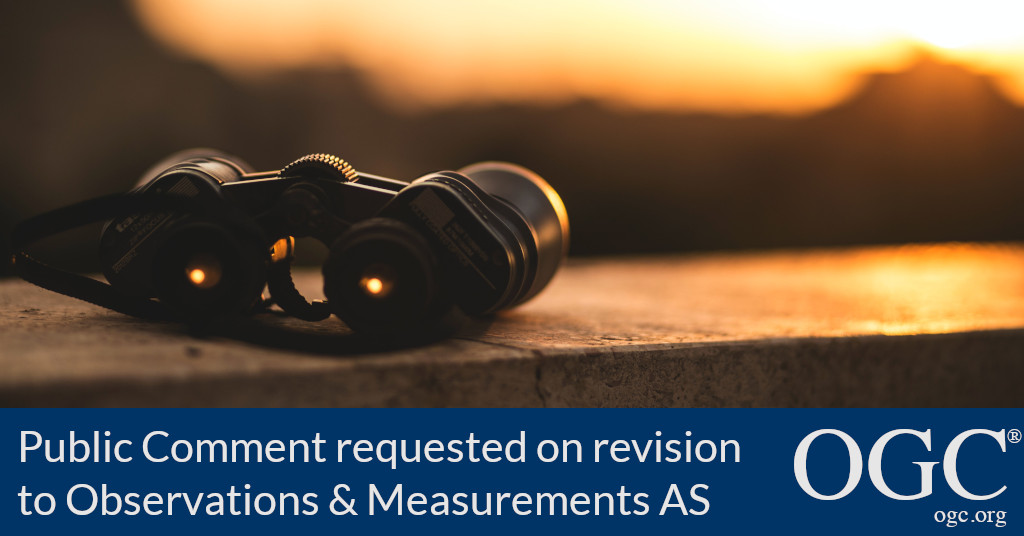O&M enables models for the exchange of information describing observation acts and their results. This new revision supports publication to the Web of Data.

The Open Geospatial Consortium (OGC) seeks public comment on a revision to the joint ISO and OGC Standard, Observations and Measurements (O&M). Comments are due by the 18th of January, 2021.
The O&M Standard defines a conceptual schema for observations, including for features involved in the observation process, and for features involved in sampling when making observations. These provide models for the exchange of information describing observation acts and their results, both within and between different scientific and technical communities.
O&M enables other Standards and specifications for capturing information originating from sensors as well as various environmental prediction models, using shared semantic concepts. Application areas can be as diverse as scientific devices capturing water and air quality measures, to cameras on drones, to tracking devices on commercial transport.
The O&M standard arose from work originally undertaken through OGC's Sensor Web Enablement (SWE) activity. A set of interfaces and protocols was standardized, through which applications and services are able to access sensors of all types, and observations generated by them, over the Web. O&M now forms the foundation for a number of other OGC Standards, such as TimeseriesML and GroundwaterML.
A new generation of geospatial standards is now emerging, based on general Web standards, architecture, and current practice, as described in the W3C/OGC Spatial Data on the Web Best Practices and exemplified by the OGC API family of standards. This includes several new standards for describing and publishing sensors and observations, such as OGC SensorThings API and W3C/OGC Semantic Sensor Network Ontology. This new version of the O&M Standard is informed by these recent developments and is aimed at enabling the publication of observation data as part of the Web of Data, while also supporting other means of data exchange.
The candidate ‘Abstract Specification: Geographic information – Observations and Measurements' standard is available for review and comment on the OGC Portal. Comments are due by the 18th of January, 2021, and should be submitted via the method outlined on the Observations & Measurements Standard's public comment request page.
About OGC
The Open Geospatial Consortium (OGC) is an international consortium of more than 500 businesses, government agencies, research organizations, and universities driven to make geospatial (location) information and services FAIR – Findable, Accessible, Interoperable, and Reusable.
OGC's member-driven consensus process creates royalty free, publicly available geospatial standards. Existing at the cutting edge, OGC actively analyzes and anticipates emerging tech trends, and runs an agile, collaborative Research and Development (R&D) lab that builds and tests innovative prototype solutions to members' use cases.
OGC members together form a global forum of experts and communities that use location to connect people with technology and improve decision-making at all levels. OGC is committed to creating a sustainable future for us, our children, and future generations.
Visit ogc.org for more info on our work.
“







